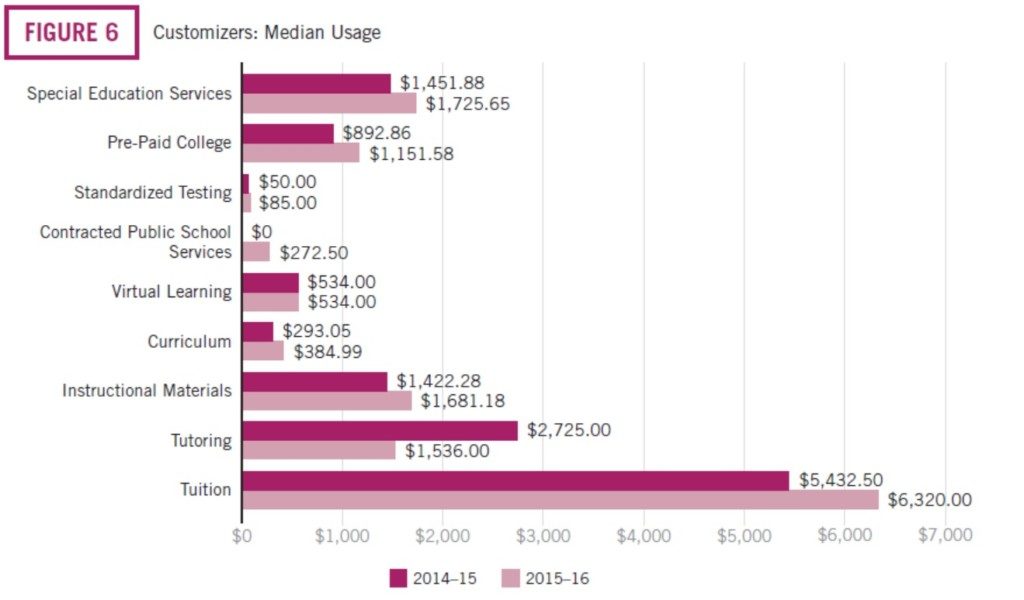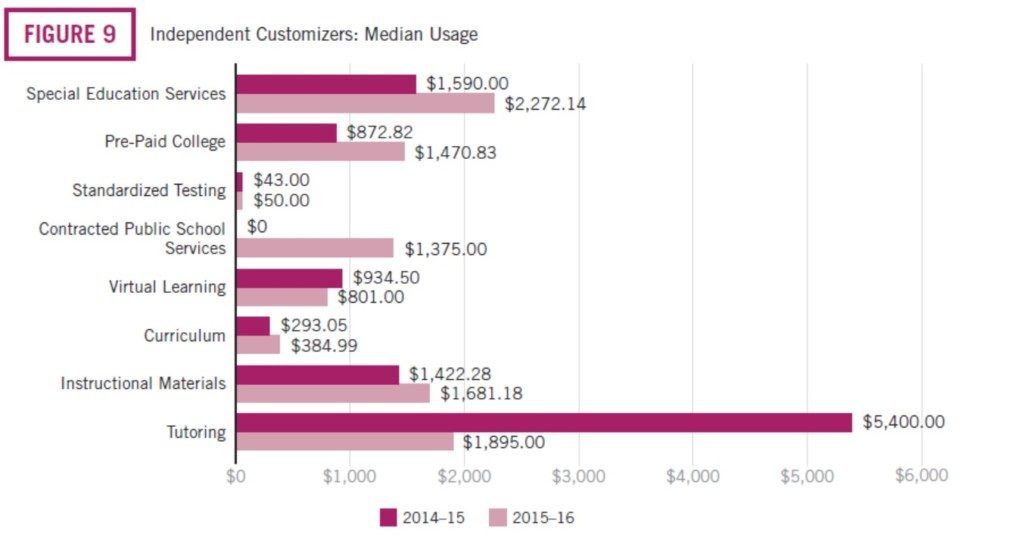Florida’s newest private school choice program is no ordinary voucher, a new report finds.
The analysis, released this week by EdChoice, found that in the first two years of the Gardiner Scholarship program, roughly four out of ten parents used the scholarships to pay for multiple educational services — not just private school tuition.
The scholarship program is available to children with specific special needs. It has grown to become the nation’s largest education savings account. The accounts allow parents to control the funding the state would spend to educate their child. They can spend the money on a range of education-related expenses, from textbooks and school tuition to tutoring and therapy.
Step Up For Students, which publishes this blog, helps administer the scholarships and provided the data used in the report.

Educational choice advocates have embraced ESAs because they’re more versatile than conventional vouchers. Lindsey Burke, director of the Center for Education Policy at the Heritage Foundation and one of the report’s authors, said data suggests parents appreciate that flexibility.
“What we’re seeing is that right off the bat, parents are customizing,” she said.
During the 2014-15 school year, when the program first launched, more than 77 percent of parents’ expenditures were for private school tuition. The next year, that percentage fell below 72 percent, suggesting parents are finding more diverse uses for the scholarships.
Burke’s co-author, Jason Bedrick, said the trends will be worth watching in future years. His organization, EdChoice, advocates making education savings accounts available to the widest possible range of students.
He said that as more states create ESA programs, and existing programs grow, educators and other providers could respond. Some might start offering educational options focused on a particular subject, like a “great books” program in English literature. Others might create new tutoring or educational therapy services. More public schools might get in on the action, offering specific courses or support services — something Florida law already allows.
“What we predict is that you’re going to have a virtuous cycle of innovation and customization,” Bedrick said.
During the 2015-16 school year, nearly 1,000 families were what the report calls “independent customizers.” They did not spend any money on tuition at a full-time brick and mortar school. Instead, they used the scholarships to purchase a mix of tutoring, therapy, curriculum or other educational services.
It makes sense that a substantial number of families with special needs children would go this route, since many of them have found existing schooling options are not a good fit.

Burke said the fact that parents use the accounts in diverse ways suggests policymakers should not to place too many limits on their potential uses.
Gardiner Scholarships can be used for a wide range of expenses, she said, and “we can see that parents really value that.”



Good evening ,
I think this is awesome opportunity for special need children.What I would like to know is will step up in the future provide additional findings for counseling,tutors or career coaches for especially High school students?I also would like to know if there’s schools listed or monitored for academic success on a regular base where parents in search of a great school can choose for this children to attend. Due to schools receiving tuition
Is it something to assure it’s not just for funding but beneficial and up to standards for children’s sucess.